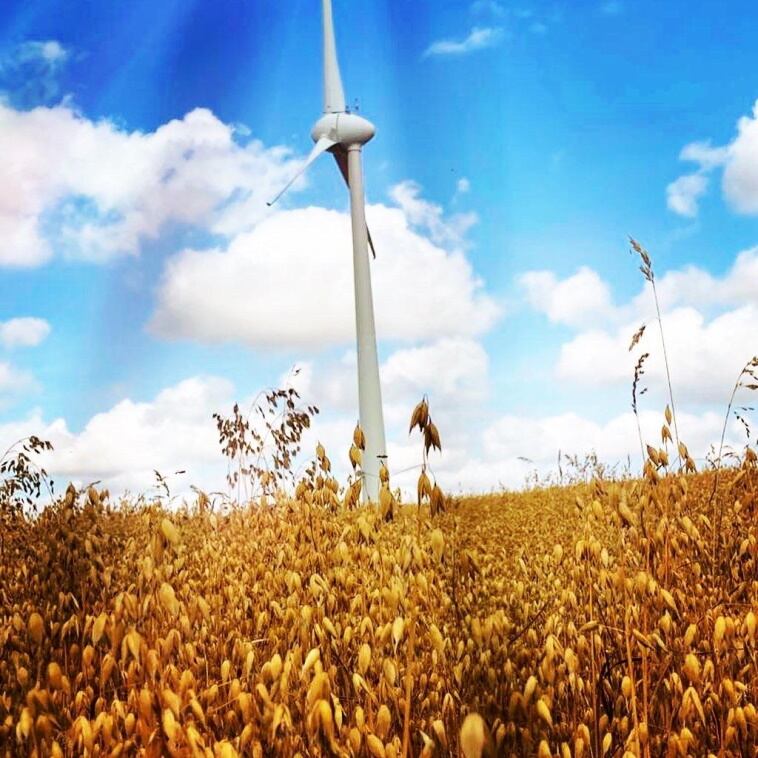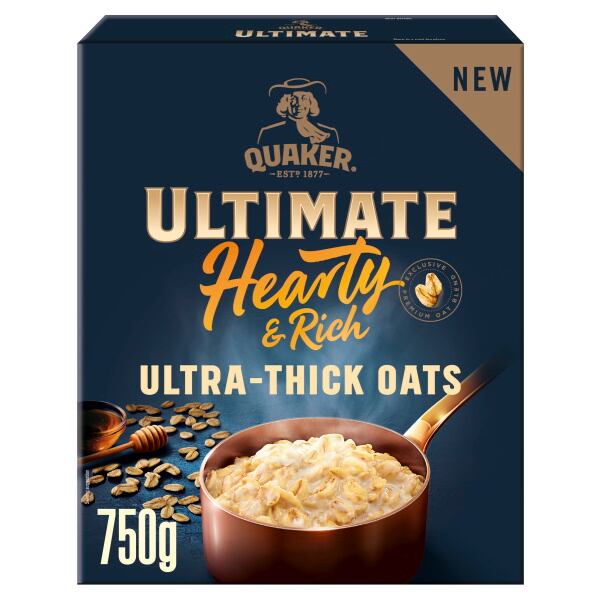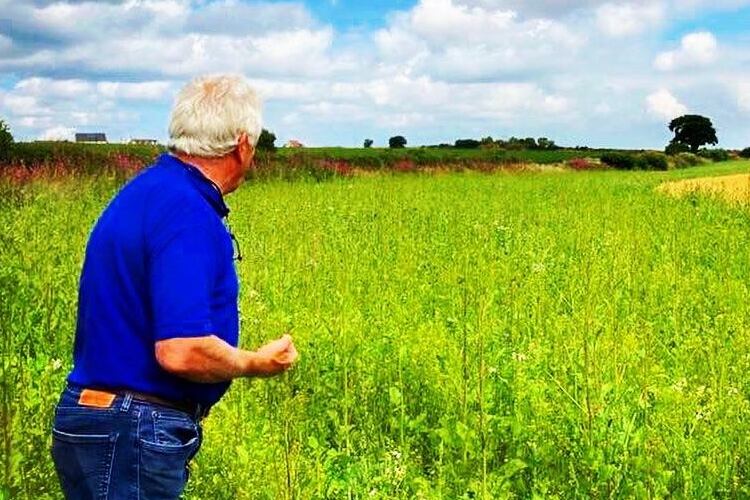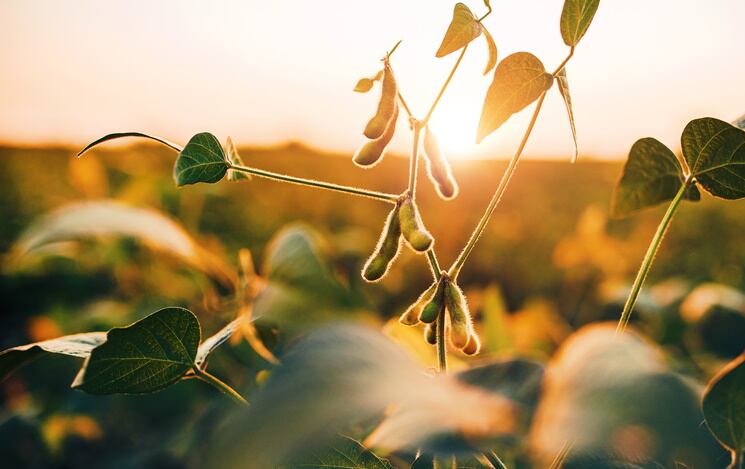PepsiCo is funding membership of farming organization Linking Environment And Farming (LEAF) for its 300-plus UK-based Quaker Oats farmers. The aim is to help them achieve LEAF Marque certification, an environmental assurance system that requires farmers to take a ‘rigorous approach’ to delivering more sustainable farming.
Over the next two years, PepsiCo believes this scheme will help its UK Quaker suppliers – 75% of whom are located within a 100-mile radius of its Cupar Mill production facility in Fife, Scotland – to adopt regenerative practices.
“PepsiCo defines regenerative agriculture as a set of practices that improve and restore ecosystems, while building resilience by focusing on soil health, carbon sequestration, watershed management, biodiversity, and livelihoods. Regenerative agriculture is a mindset and ongoing commitment that takes into consideration the full scope of farming, from the health of the soil to the resiliency and efficacy of farming practices and solutions,” Archana Jagannathan, senior director of sustainability, PepsiCo UK & Ireland, told us.
The beverages-to-snacks manufacturer has set itself some significant global targets on converting its supply chain to regenerative agriculture. By 2030, PepsiCo wants to have spread regenerative farming practices to 7m acres of cultivated land, the equivalent of its entire agricultural footprint.
PepsiCo uses more than 25 crops sourced across 60 countries, supporting over 100,000 jobs throughout its agricultural supply chain. This scale and reach mean the standards and practices that PepsiCo promotes can influence the environmental, social and economic impact of agriculture around the world.
The company estimates the push towards regenerative, part of its Positive Agriculture strategy, will eliminate at least 3m tons of greenhouse gas emissions by the end of the decade. Through its pep+ programme, the Lay’s-to-7-Up manufacturer has targeted a ‘strategic end-to-end transformation’ of its business that it believes will deliver for people, planet and profits.
The company recognises that changes to agricultural production offer the opportunity to address climate change, biodiversity loss and rising rural-urban inequality. But impact will depend on how effectively PepsiCo can collaborate with the farmers that supply it through programmes like the Quaker-LEAF initiative in the UK.

Moving from ‘ambition’ to ‘meaningful change on the ground’
LEAF CEO Caroline Drummond believes that farmers have a unique opportunity to transform lofty climate ambitions into environmental impact.
“With COP26 bringing the crucial issue of tackling climate change into focus, farmers can play a key role in translating global and national ambitions into meaningful change on the ground,” she explained.
Regenerative agriculture, in broad brush strokes, leverages food production to draw carbon down into the earth, building soil health, water resilience and yield in the process. Practices include cover cropping, no or minimal till and crop rotations. But while this is a concept we’ve been hearing a lot about lately, there is no industry-agreed standard for regenerative agriculture. So, what’s LEAF’s approach?

“LEAF emphasizes taking practical, achievable steps for continuous improvement to reverse climate change and restore degraded soil biodiversity, and offers their LEAF Marque Standard certification to farmers who grow their crops sustainably and with care for the environment,” Drummond told FoodNavigator.
“The certification process walks farmers through nine easy steps, including a thorough farming business assessment outlined by LEAF’s Integrated Farm Management (IFM) approach. IFM helps farmers step back from everyday farming practices and take an objective look at what they are doing and the reasons why. Once farmers meet LEAF Marque Standards, a trained certification body reviews their application with an annual inspection before issuing a certification.”
PepsiCo has been a long-time supporter of LEAF’s approach – a major factor in the food and beverage firm’s decision to link up with the farming group, Jagannathan added. “We have been corporate members and proud supporters of LEAF for many years, leveraging their innovative practices and advancement of knowledge to inspire and enable sustainable agriculture among our farmers.
“The oat crop has incredible opportunities for nutrition, soil and biodiversity, and social fairness, and a LEAF membership equips our Quaker oat farmers with the community and resources to rise to the occasion. LEAF Marque Standard is in close alignment with our pep+ agenda, allowing us the unique opportunity to empower and support our UK oat farmers”
In order to ‘empower and support’ the group’s oat suppliers, PepsiCo and LEAF will provide additional tools to farmers as they work towards becoming LEAF Marque-certified. This will help them embrace a more circular agriculture, and put health and sustainability at the centre of their operations, PepsiCo maintained.
“Once a member of LEAF, farmers will be supported with a suite of resources to drive their businesses forward – economically, environmentally, and socially. Through the myLEAF portal, farmers will be able to monitor their performance, identify strengths and weaknesses and set goals for improvement to ensure a cultivated crop that has a positive impact on the environment. They will also benefit from the wide range of guidance and peer-to-peer knowledge that comes with LEAF membership. LEAF is also investing in monitoring, listening and evaluative studies to provide vital insights on our work and way forward,” Drummond elaborated.
The move was welcomed by Matt Waldie, a fourth-generation farmer who manages Gilston Mains, a LEAF-accredited farm in Fife, Scotland. Waldie has been growing Quaker oats for the past decade.
“Growing Quaker Oats has always been a perfect match for our farm. The grain fits well into our crop rotation, and working with a local partner – only six miles away – means our crops barely have to travel before they are turned into the oats people enjoy every day,” Waldie said as he outlined the positive potential of the scheme.
“Becoming LEAF Marque-certified was a big moment for us as it recognised the hard work we’ve put into making our farming practices more sustainable. It’s fantastic that all Quaker Oats growers are now being given the funding and support to optimise their production, while also protecting the soil and natural environment for future generations.”
Sustainability 'at the centre' of how consumers view brands

Sustainability remains a key consideration for consumers. Research from Deloitte revealed 32% of consumers are ‘highly engaged’ with adopting a more sustainable lifestyle. Equally important, 28% of consumers have stopped buying certain products due to ethical or environmental concerns.
This is a trend that is certainly on PepsiCo’s radar. “Sustainability will increasingly be at the centre of how consumers come to evaluate and trust brands,” Jagannathan told us.
From 2023, the LEAF Marque logo will start to appear on packs of Quaker Oats across the country, 'giving consumers confidence' in the more sustainable way their oats have been grown.
“This is an important partnership for Quaker UK and the farmers we work with, and it’s one of many transformational sustainable agriculture partnerships that PepsiCo is entering into to deliver its global pep+ transformation that puts sustainability at the heart of everything we do as a business,” PepsiCo’s UK sustainability chief explained.
“As one of PepsiCo’s many iconic brands taking positive agriculture action, Quaker’s responsibility to people and planet starts with supporting the farmers who grow our oats and equipping them with smart, sustainable farming practices.”


